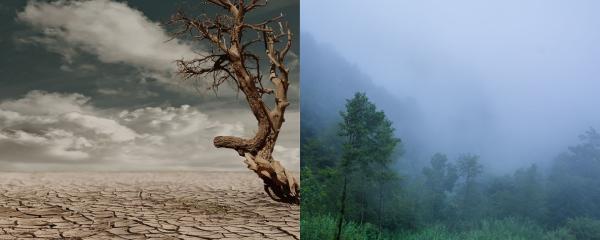
IIT Palakkad study shows how different indices used to predict drought combined with effects fof climate change can lead to different climate predictions for the future

IIT Palakkad study shows how different indices used to predict drought combined with effects fof climate change can lead to different climate predictions for the future
Researchers investigate the effects of dark matter particles on the growth of black hole shadows.
Study uses three-dimensional simulations to understand how flying insects navigate their terrain
Researchers from ICAR-Indian Institute of Wheat & Barley Research, Karnal, and ICAR-Indian Agricultural Statistics Research Institute, New Delhi, have proposed a faster and reliable approach to identify different varieties of wheat. Using a mix of software engineering, mobile application development and genetic analysis, they have developed a new web-based server called VISTa—the first-ever plant variety identification system in the world—to identify wheat varieties.
In India, the school education system puts a higher emphasis on grades than on practical learning, thus encouraging practices like late-night studies and changes in eating and sleeping routines during weekdays and weekends. So how badly are India’s adolescents affected by this? In a recent study, researchers at the Chaudhary Charan Singh University, India, analysed the complex relationship between these lifestyle changes and the disruptions in the circadian cycles among students from classes IX, XII and the first year of college.
“As the world confronts the COVID-19 pandemic, humanity’s victory over smallpox is a reminder of what is possible when nations come together to fight a common health threat,” said Tedros Adhanom, Director-General of the World Health Organisation (WHO), in a recent media briefing.
Researchers investigate what factors drive migration in South Asia and its benefits in adapting to climate change.
Being "environment friendly" or "eco-friendly" is the 'in thing' today. Aiming a zero-waste or vegan or carbon-neutral lifestyle are now trendy. The recent climate strikes and the declaration of a 'climate emergency' have raised awareness on environmental issues, motivating behavioural change in people towards sustainable lifestyles. However, do people tend to perceive themselves as better than others in living such a planet-friendly life? Yes, says a study by researchers at the University of Gothenburg, Sweden.
In a recent study, researchers from the Indian Institute of Science and Education Research, Kolkata, have investigated the nest architecture of a species of Indian ant, called Diacamma indicum.
A curious question in science is to know how these different types of lions evolved and how different are today’s lions from their ancestors. In a new study, an international team of researchers have tried to answer these questions by analysing the genes of extinct and living lions. The study, published in the Proceedings of the National Academy of Sciences (PNAS), finds that about 500,000 years ago, modern and now-extinct lions shared a common ancestor. Further, about 70,000 years ago, two different lineages of modern lions emerged. The findings also have implications on the conservation of the remaining lion population, which is just 10% of what it was a century ago.
Scientists from ICAR-NDRI, Karnal, have observed the competition between our natural gut bacteria and pathogenic bacteria closely. They have identified some proteins involved in this interaction and have also produced microbeads, embedded with these proteins, that have the potential for oral administration to fight pathogenic bacteria.